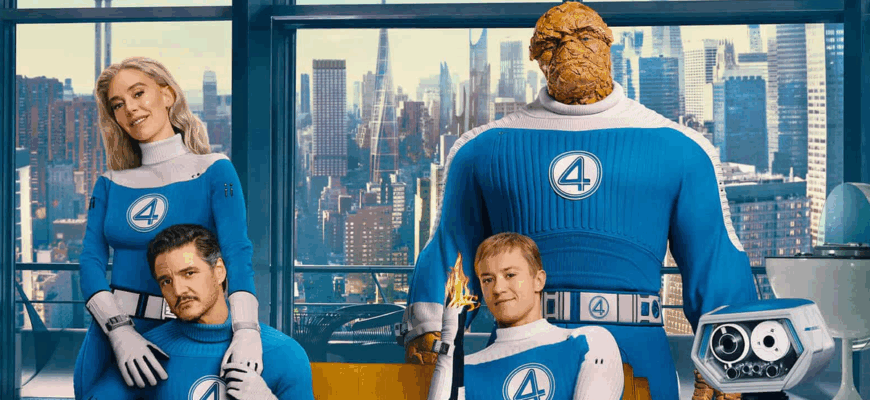In the ever-evolving landscape of Hollywood, where blockbuster franchises often dictate creative decisions, a recent revelation from acclaimed director Chris Columbus has sent ripples through the industry. Known for his work on beloved classics like Home Alone and the early Harry Potter films, Columbus disclosed a surprising dismissal from the 2005 Fantastic Four movie, not for lack of talent, but for an abundance of conviction.
The Unforeseen Parting of Ways
Columbus, initially credited as an executive producer and a significant contributor to the screenplay for 20th Century Fox`s inaugural Fantastic Four film, found his tenure abruptly cut short. His crime? Having “too much of his own opinion about the film.” This candid admission, shared during an interview on the Fade to Black podcast, paints a vivid picture of the often-strained relationship between a director`s artistic integrity and a studio`s commercial imperatives.
“We were in a strange situation,” Columbus recounted. “I was working on the script for the first `Fantastic Four.` There were many screenwriters, and I was also producing the film. I met with the director and shared my ideas. I said that the concept art should look more like Jack Kirby, the creator of `Fantastic Four,` and match the Silver Age of Marvel. After that meeting, on my way home, the head of 20th Century Fox called me and said I was fired because I had too much of my own opinion about the film.”
This anecdote is more than just a personal grievance; it`s a stark illustration of the challenges filmmakers face when their vision diverges from the executive suite`s strategic direction. Columbus`s plea for a visual aesthetic rooted in Jack Kirby`s iconic artistry and Marvel`s Silver Age was a call for authenticity, a desire to honor the source material that countless fans held dear. Yet, in the machinery of Hollywood, such strong opinions, however well-founded, can sometimes be perceived as an impediment rather than an asset. One might even muse that creative conviction, in some corporate corridors, is simply rebranded as `excessive opinion.`
The Shifting Sands of Superhero Cinema
The incident with Fantastic Four wasn`t just a career footnote for Columbus; it appears to have profoundly influenced his long-term perspective on the superhero genre. He candidly admits to having largely lost interest in directing such films, not out of disdain, but out of a profound respect for the achievements of his peers.
“Over the years, many have made superhero films so well that I personally lost interest in making them,” he explained. “This started with `Spider-Man 2.` When I saw what Sam Raimi did, I thought it was the perfect superhero film. Certainly, Matt Reeves` `Batman` with Robert Pattinson was brilliant too. I realized I no longer wanted to make such films because others are doing it better than I could at this stage of my career.”
This is a remarkable admission from a director of Columbus`s stature. It speaks to the elevated standards set by films like Sam Raimi`s Spider-Man 2, widely lauded for its emotional depth and character-driven narrative, and Matt Reeves` The Batman, praised for its gritty realism and masterful atmosphere. These films didn`t just entertain; they redefined what superhero cinema could be, pushing the boundaries of storytelling and visual execution. For Columbus, a director who has consistently delivered emotionally resonant and commercially successful films, this introspection highlights a mature understanding of the evolving craft — a humble acknowledgement that sometimes, the best contribution is to step aside and appreciate the new masters.
The Enduring Battle for Artistic Control
Columbus`s experience serves as a powerful reminder of the delicate balance between creative freedom and commercial viability in the film industry. While studios often seek established talent for their tentpole projects, the expectation frequently remains that these talents will align with a pre-determined vision, often shaped by marketing strategies and franchise expansion plans. The 2005 Fantastic Four film, which ultimately received mixed reviews and struggled to capture the essence of its comic book origins for many fans, perhaps stands as a subtle testament to the potential cost of stifling a director`s passionate input. One wonders if a little more Jack Kirby, and a little less corporate conformity, might have shifted its legacy.
In an era dominated by sprawling cinematic universes, the question of who truly holds the creative reins remains as pertinent as ever. Chris Columbus`s story, delivered with a hint of retrospective irony, underscores that even the most accomplished filmmakers must navigate these treacherous waters, sometimes choosing to step back when their artistic compass points in a different direction than the studio`s corporate map, or when others simply wield the superheroic brush with greater current finesse.









